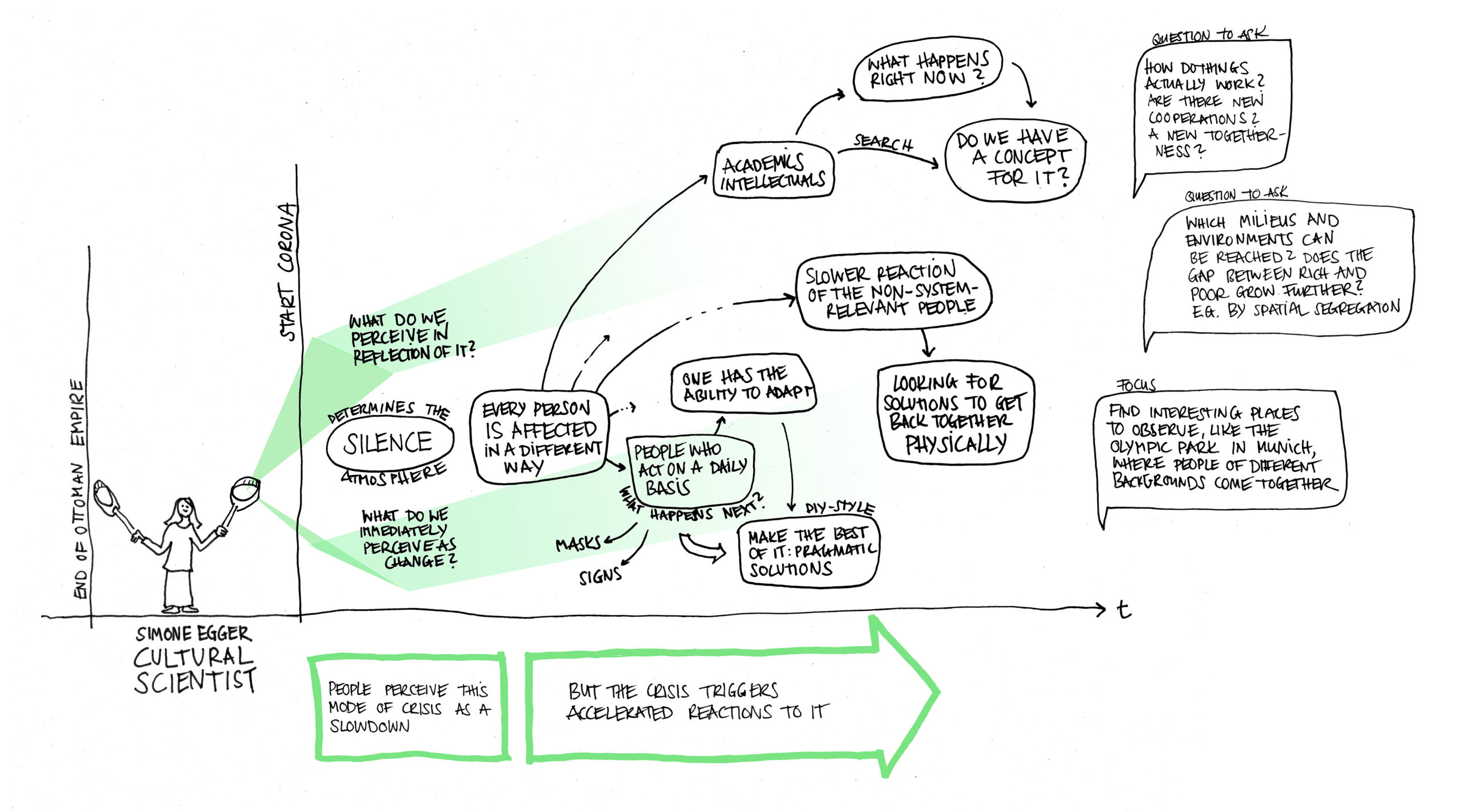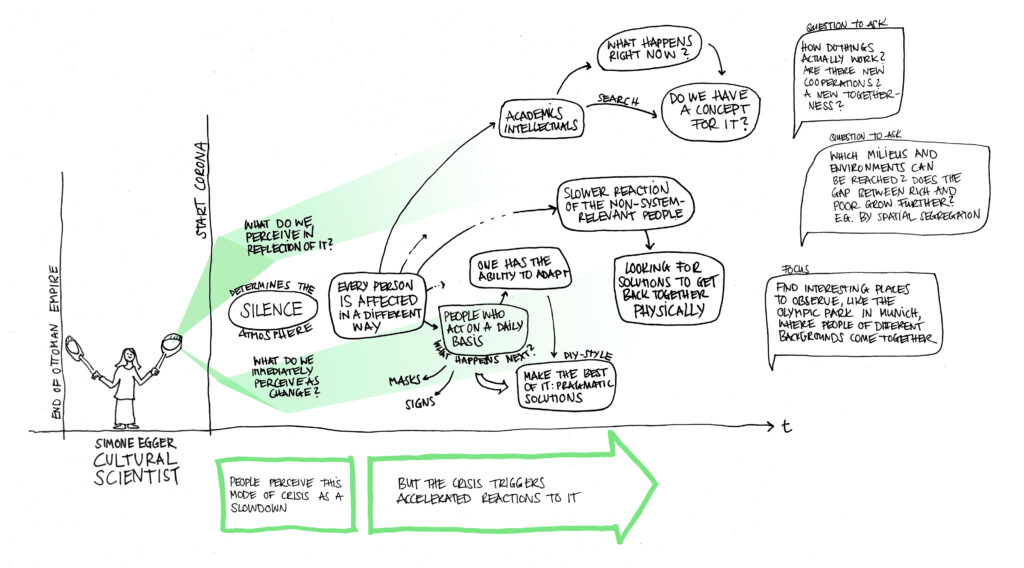
The City as Experimental Setup
Stadt als Versuchsanordnung
Podcast in German: Simone Egger, July 2nd 2020
How do we know where to look for understanding what is happening in and to our urban societies? Right now, as urban researchers, we find ourselves presented with a huge experiment whose outcomes are yet hard to guess. Simone Egger, cultural scientist, is an active participant and observer of the urban community. What/Next spoke to her about what she sees, where to look und how this moment can be arranged in time.
Woher wissen wir, wo wir hinschauen müssen, um zu verstehen, was in und mit unseren Stadtgesellschaften geschieht? Im Moment sehen wir uns als Stadtforscher*innen vor ein riesiges Experiment gestellt, dessen Ergebnisse noch schwer abzuschätzen sind. Simone Egger, Kulturwissenschaftlerin, ist eine aktive Teilnehmerin und Beobachterin der städtischen Gesellschaft. What/Next sprach mit ihr darüber, was sie sieht, wohin wir schauen sollen und wie dieser Moment zeitlich eingeordnet werden kann.

The presence of the corona virus has changed urban spaces, the daily life of their creators and participants in city life, as we could learn from previous contributors. How do cultural anthropologists look at what is happening in our cities? How can we, in the urban context, examine people in relation to their culture and describe this qualitatively? For Simone Egger, there are two levels of perception when she moves through the city and actively participates in city life. On the one hand, there is the level at which one asks: what is perceived directly as change? And another level in which one asks: what do you perceive in reflection? When people exchange their experiences, what questions do they deal with? To do this, it is important to leave the comfort zone of one’s own environment and engage with others in order to find modes of interaction.
There is a historical interruption of everyday processes. Every person is affected in some way by Corona.
Simone Egger 07/2020
Since we are now in this very moment, the crisis phase triggered by the corona virus is difficult to understand and classify in terms of time. In which transformation phase are we now exactly? Knowledge about previous transformations of societies, such as the transformation of Munich and Izmir since the late 19th century into modern urban societies, can help us to better understand our particular phase in time. What people now perceive as silence and a decelerated reality, in fact provokes that people, in their daily lives, react quickly and immediately, thus causing an acceleration of development.
Some time must pass to be able to reflect on current events. We should persistently continue to observe on-site – like this we can create qualitative knowledge about the ongoing change.
Simone Egger 07/2020
A similar inequality in perceived time can be observed in Munich at the turn of the last century: the inability of people to act after World War II caused them to remark this phase as slow down, while – in the larger and historical context – the reconstruction phase enhanced a transformation to urban societies. We can also observe that different groups react to the crisis with different degrees of speed: While shop owners are implementing ad hoc concepts in order to keep the business running in compliance with the new rules, other groups first ask: Do we already have a concept for how to deal with the new situation?
We should allow more pragmatism in design and planning processes, and include the thoughts of others. Thus our capability of acting increases.
Simone Egger 07/2020
Our urban societies are constantly undergoing transformation, with countless processes of change. This momentum triggers accelerated reactions and creates ample scope in which our relationship to our culture of living and encounter in the city can be reinvented. Simone Egger pleads for using the tranquility of the moment to take a closer look, to build up new cooperations and, as an intellectual, to take a somewhat more pragmatic approach to shaping it.
Simone Egger is a cultural scientist and work as coordinator of the international doctoral programme Transformation Processes in European Societies at the LMU Munich. She is currently working as an assistant professor at the Institute for Cultural Analysis at the Alpen-Adria-Universität Klagenfurt. She curated RODEO 2020, a dance and theatre festival, for the city of Munich.